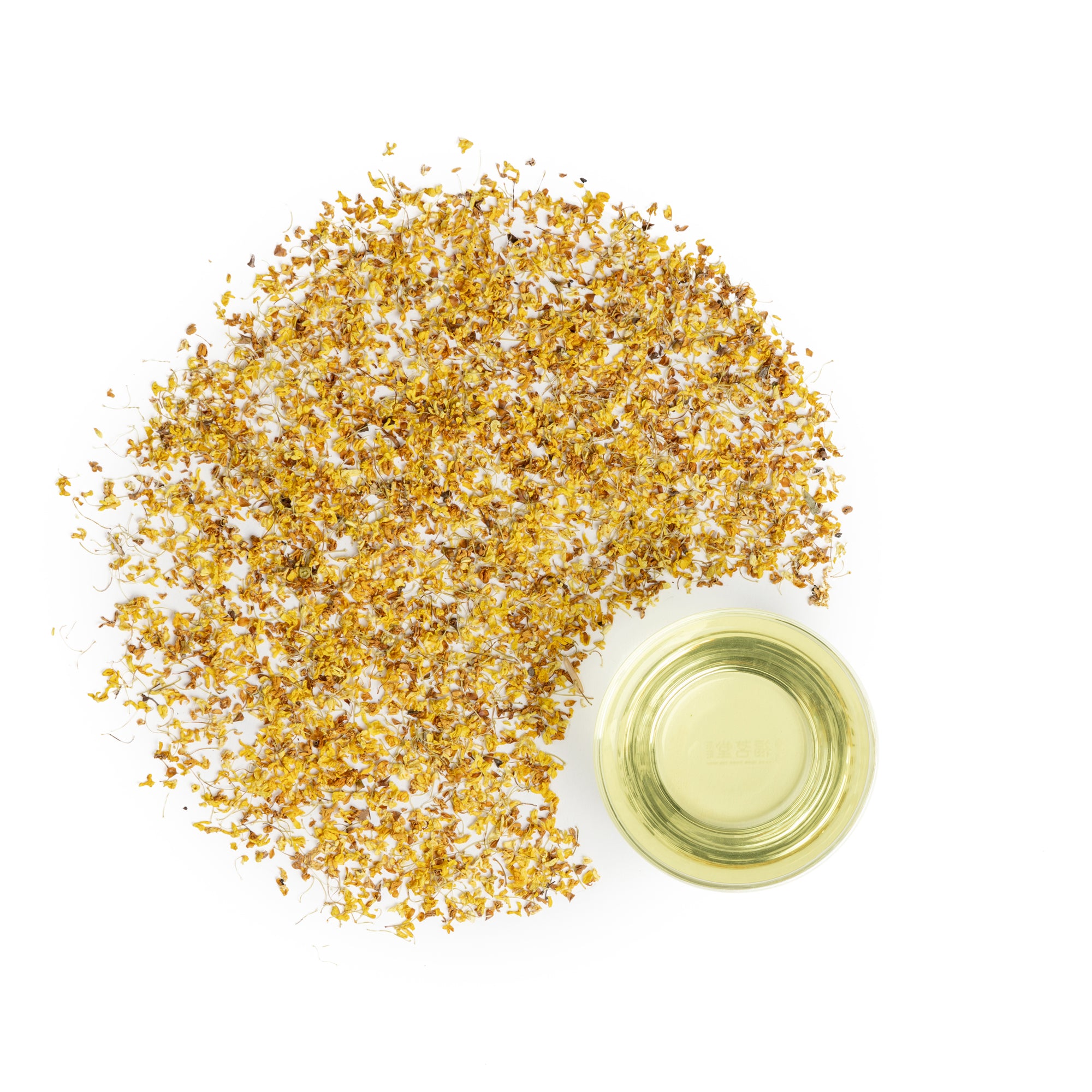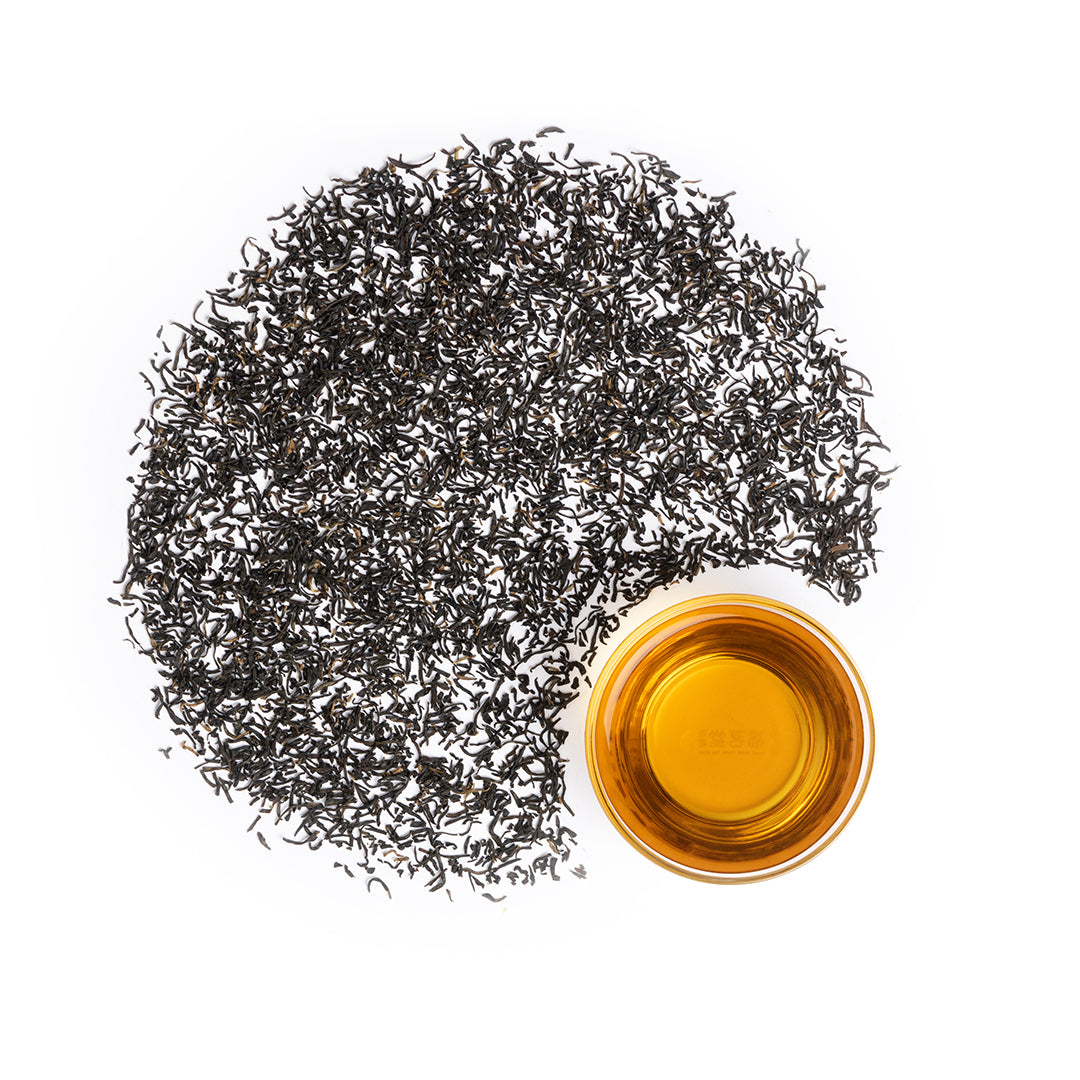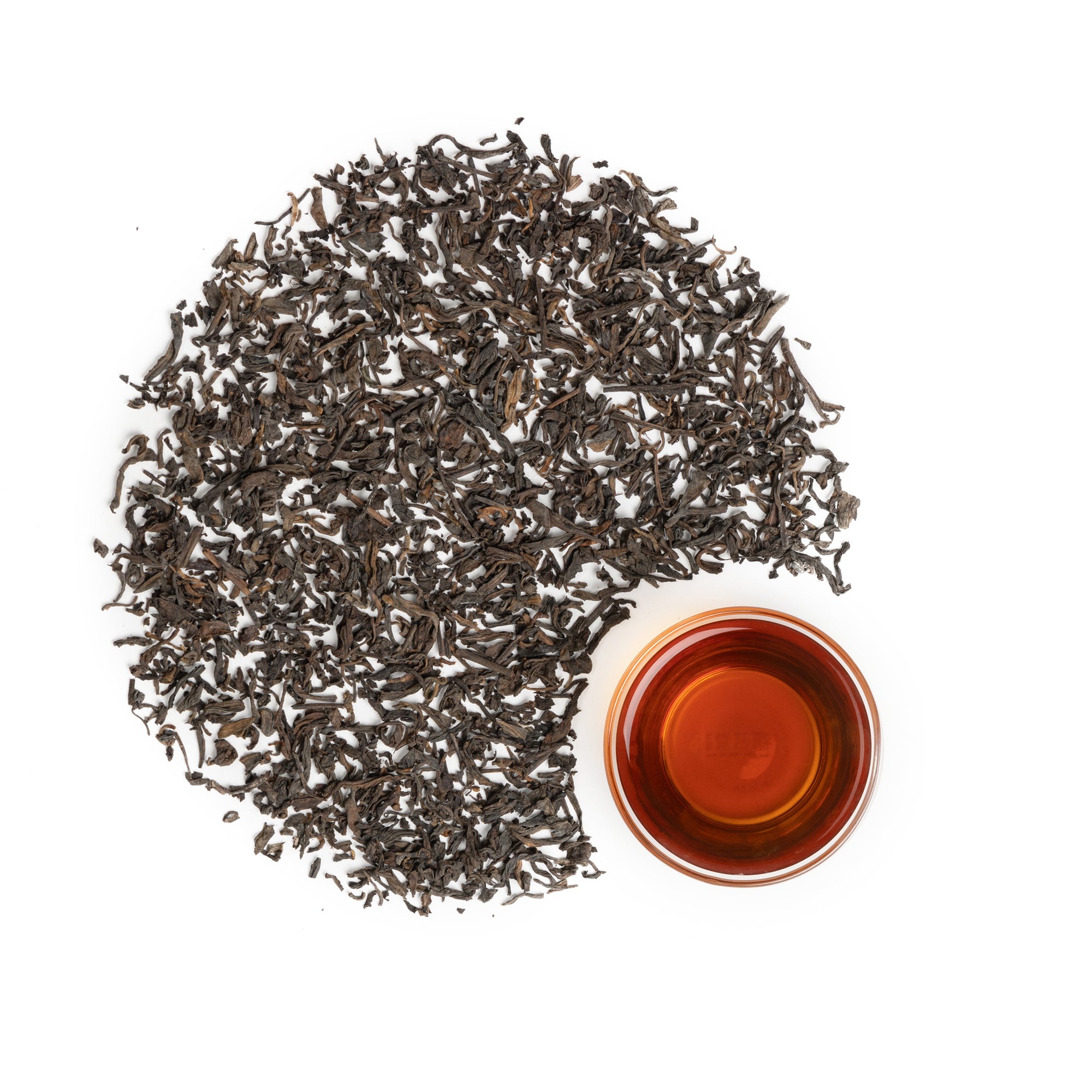China has a long history, tea-producing areas are spread across various provinces, and tea-picking and processing techniques are exquisite. Through continuous innovation, a variety of tea varieties have been formed. According to current statistics, there are approximately more than 500 varieties.
As for how to classify categories, it should be determined based on the shape, origin, tea tree variety, production method, its color, fragrance, or product properties, or other methods. There is no unified opinion yet. The more common classification method is based on the manufacturing process and the characteristics of tea, which are divided into six categories: (1) Green tea (2) White tea (3) Yellow tea (4) Green tea (5) Black tea (6 ) dark tea. As for what type of tea the tea embryo used in floral tea belongs to, it is classified into that category. For example, Jasmine Maofeng tea, Maofeng tea is green tea, then Jasmine Maofeng tea belongs to the green tea category, and the same applies to other floral teas.
-

Green Tea
Green tea is an unfermented tea. The "Three greens" of green tea are dry leaves green, tea green, brewed leaves green. The inner quality requires a high aroma and a fresh and mellow taste. Common famous green teas on the market include Xihu Long Jing, Huangshan Maofeng, Dongshan Bi Luo Chun, Lu'an Gua Pian, Tai Ping Hou Kui, Mao Feng, etc.
-

White Tea
White tea is a slightly fermented tea. White peony, it looks like a peony flower with buds and leaves connected to the branch, two leaves hugging the heart, green leaves sandwiching silver buds, so it is called white peony. The aroma of the inner substance is fresh and aromatic, the taste is fresh and mellow, and the tea is apricot yellow. The most valuable white tea is Silver Needle Pekoe, which is characterized by its white hairs, needle-like shape, apricot-yellow tea and sweet taste. White tea is mainly produced in Fuding, Zhenghe, Songxi and Jianyang in Fujian Province.
-

Floral Tea
Jasmine tea is first made from tender buds in early spring to product green tea, which is then scented naturally by jasmine flowers. Through the process of scenting, the floral aroma and tea flavor are integrated. As a result, this floral tea has a particularly high concentration of aromatic compounds, which can help relieve stress.
-

Oolong Tea
Oolong tea is a semi-fermented tea. High-end oolong tea has a special charm, such as Wuyi rock tea with "Rock Charm", Tie Guan Yin with "Yin Charm", and Taiwan oolong with "High Mountain Charm".
-

Black Tea
Black tea is a fully fermented tea. Black tea can be mainly divided into two categories: whole leaf black tea and broken leaf tea. The famous small leaf black tea is Lapsang Souchong. Its quality characteristics are that the leaves are dark in appearance, with straight and thick cords; the inner substance has a high aroma, with a slight pine smoke aroma, the tea is orange-yellow, and the taste is strong and brisk, like Longan soup. The quality characteristics of whole leaf black tea are: the appearance of the tea is tender, tight, straight and even, the tea color is black bloom, the aroma is fragrant and lasting, the taste is mellow and sweet, the tea color is red and bright.
-

Dark Tea
Dark tea is a kind of post-fermented tea. Dark tea is divided into two categories: loose tea and tea disc. The quality characteristics are that the tea is brownish red, the taste is smooth and mellow, and the aroma is unique with aged flavour.
Tea Knowledge Q&A
Will drinking tea hurt the stomach? Is there any tea that doesn’t hurt the stomach?
Generally speaking, tea does not hurt the stomach, but different people may be suitable for different teas. Current research shows that black tea has a significant motility and protection effect on the digestive tract, and may be suitable for those with weak gastrointestinal function or damage to the digestive tract; green tea may be more suitable for those with a strong appetite and strong digestive function; while traditional Because Tieguanyin has a moderate degree of fermentation, it is more suitable for drinking by most groups.
Are all teas divided into warm, cold and cool properties? Is Longjing cold?
Generally, heavily fermented tea leaves are milder in nature, while unfermented and lightly fermented tea leaves are irritating and can be divided into warm and cold teas among the people. Zhijing belongs to green tea. Green tea is unfermented tea and is customarily called cool.
Can pregnant women drink tea? If so, what kind of tea is suitable for them?
It varies from person to person. Since tea itself contains caffeine, it is recommended to follow the doctor's advice. Normally, it is recommended to drink lighter tea, such as light ripe Pu'er, light black tea, etc.
Can children and babies drink tea?
As long as you drink tea reasonably, tea is also beneficial to children's health. Try to drink it during the day, and the tea soup should be light and warm. Rinse your mouth with tea after meals. Tea polyphenols can refresh your mind, prevent tooth decay and protect against radiation.
Is it okay to drink tea on an empty stomach?
Drinking tea on an empty stomach will irritate the gastric mucosa. Whether it is suitable to drink tea on an empty stomach depends on individual tolerance. Generally speaking, green tea has not undergone any fermentation, so drinking it on an empty stomach may cause irritation; Oolong teas such as Tieguanyin are semi-fermented teas, and their impact on the stomach is not as strong as green tea; black tea and dark tea are milder. But it still varies from person to person. Many people are accustomed to drinking tea on an empty stomach in the morning without any effect.
Can green tea whiten skin?
Tea cannot directly whiten skin. But high-quality green tea contains tea polyphenols, and tea polyphenols can resist ultraviolet rays, protect against radiation, regulate the intestinal tract, and therefore have skin care effects.
What kind of tea can the elderly drink? Should they not drink green tea? Is it cold?
It is recommended to drink tea with low irritation, such as Pu'er, black tea, Anji white tea, Wuyi rock tea and traditional Tieguanyin. It is not recommended to drink large amounts of green tea.
Is it suitable for people with cold constitution to drink tea?
It varies from person to person. It is recommended that people with cold stomach drink black tea, cooked Pu'er, and rose tea.
Is a preliminary tea rinse (warming infusion) mandatory for all tea leaves?
All teas sold at Fook Ming Tong undergo rigorous laboratory testing. Since samples are submitted for inspection without pre-rinsing, washing the leaves is unnecessary as they meet strict hygiene standards. However, for aged teas or tightly compressed tea nuggets, a brief 'awakening steep' is recommended to allow the leaves to unfurl, releasing their full aromatic complexity and layered flavors.
What is the caffeine content of tea? Is it really refreshing?
The alkaloids in tea mainly include caffeine (caffeine), cocoa and theophylline, of which caffeine accounts for the majority (2%-4%). It has the effects of stimulating the central nervous system, strengthening the heart, and diuresis. The caffeine in tea and Unlike synthetic caffeine, it does not accumulate in the human body.
Can I drink tea at night? Do I not drink tea after four o'clock in the afternoon, otherwise I won't be able to sleep at night?
It varies from person to person, but it is generally not recommended to drink a lot of strong tea at night. The caffeine in tea can excite the central nervous system and be a diuretic, affecting sleep.
Which type of tea is most effective for weight loss?
Ripe Pu'er and Oolong tea are better for losing weight. The main lipid-lowering ingredients in tea are: tea polyphenols, caffeine and tea polysaccharides.
Can chrysanthemum be added to Pu'er? Will it cause hair loss?
No, chrysanthemum tea not only tastes good, but also has health benefits.
Why do people who rarely drink tea usually experience dizziness when they drink too much tea?
This phenomenon is caused by the so-called "tea alcohol" caused by the caffeine contained in tea that strongly stimulates the central nervous system and is excited, causing palpitations, body trembling, dizziness, weakness of the four limbs, stomach discomfort, hunger and other phenomena. . Those who usually drink less tea should not drink too much at one time, especially strong tea. Once you get used to it, as long as you are healthy, this phenomenon will subside.
Can the brewed tea be drunk the next day if it has been left overnight? Can it be kept fresh by putting it in the refrigerator and brewed again the next day?
Yes! But it is not recommended because it is easy to breed bacteria and lose the fresh taste if left for too long. After soaking and putting it in the refrigerator, the freshness cannot be maintained. The hot water has soaked the tea leaves and the taste will not be good the next day. This is not recommended.
There are products extracted from tea leaves on the market, which means that tea leaves have skin care effects. Is it possible to directly soak tea leaves into a facial mask for skin care? Or are there any popular skin care methods using tea leaves as an ingredient?
If you have acne-prone skin, you can directly soak the mask with tea water and apply it on the face, or use green tea water when adjusting the mask; if the acne is squeezed out, you can try sticking a soaked tea leaf on it.
If the tea has passed its expiration date or has been left out for a long time without drinking, will it deteriorate and be no longer drinkable?
As long as the tea remains dry and free from moisture, it remains safe to drink. However, its aroma and freshness will gradually decline over time, affecting the overall flavor profile. That said, post-fermented dark teas (like aged pu-erh), properly stored oolongs, and well-aged white teas can actually improve with time, developing richer and more mellow characteristics.
Why are tea leaves placed in the refrigerator? What is their purpose?
Not all teas need to be refrigerated, mainly non-fermented to medium-fermented teas such as green tea, white tea and green tea. Tea polyphenols can delay oxidation under low temperature and humidity control and maintain freshness, original color and aroma. The most suitable refrigeration temperature is 2℃-6℃, but it should not be placed in a refrigerator with an unpleasant smell.
What’s the best way to store pu-erh tea cakes? Can pu-erh be sun-dried?
Keep raw and ripe pu-erh in separate, breathable containers. Store them in a dark, odor-free place around room temperature (25–28°C) with moderate humidity. Don’t vacuum-seal – the tea needs to breathe! Warning: Never dry pu-erh in direct sun – it ruins the flavor.
What should I do if the Pu'er cake is soggy?
Place in a ventilated, cool and dry place to dry, but the quality will be affected.
Is it OK to steep tea for too long?
If high-quality tea is steeped for too long, the tea soup will feel too strong, while low-quality tea will have a bitter taste.
Can Pu'er or other teas be boiled?
Generally, Pu'er raw materials are coarse and old. Old tea with a long history can be boiled, but young tea and new tea are not recommended for boiling and drinking.
What’s so good about black tea? Should I drink it with sugar and milk?
Black tea is a fully fermented tea. During the fermentation process, theaflavins, thearubigins, etc. are produced. Theaflavins can scavenge free radicals to prevent aging, and can also strengthen the stomach and digestion, etc. You can add sugar and milk to drink according to your preference.
Will using a stainless steel tea filter to filter tea affect the taste? Or are there any other effects? How to clean if there are tea stains?
The tea drain can filter the tea residue and generally does not affect the taste. On the contrary, if the brewing technique is good and the tea is very young, it is not recommended to use a tea strainer, because the tea polyphenols in the pekoe are high and it would be a pity to filter it out. Tea stains can be washed away with a little baking soda or toothpaste.
What kind of water is best for making tea? Is mineral water good for making tea?
Slightly acidic water with a general Ph value below 7 is the most suitable for making tea.
Can I use a thermos cup to brew tea? Will it affect the taste?
It is not suitable to make tea in a thermos cup, as it will lose the freshness and taste.









